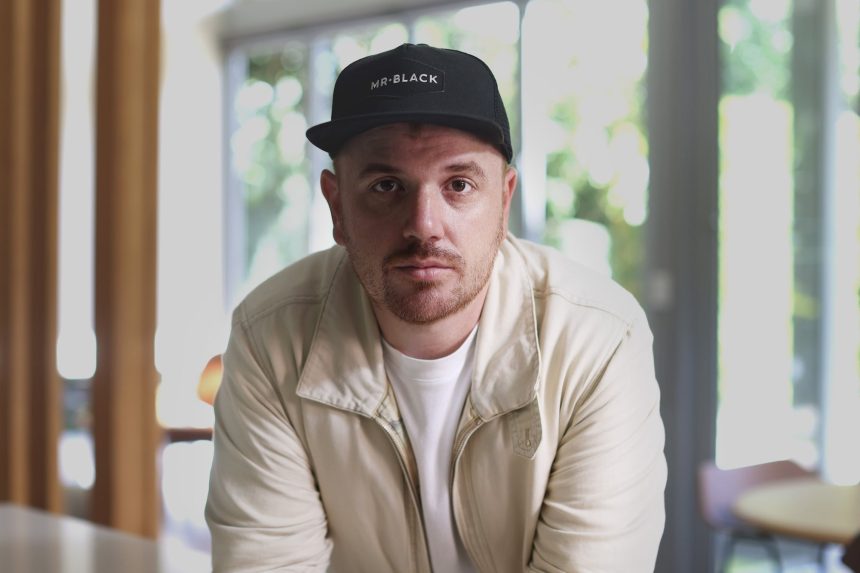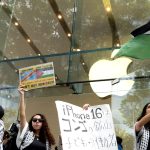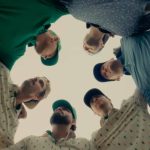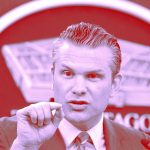“We are coffee-obsessed in Australia,” Tom Baker, co-founder of Mr Black Cold Brew Coffee Liqueur, tells Entrepreneur. “It’s like a religion. It’s a point of national identity.”
Image Credit: Courtesy of Mr Black Cold Brew Coffee Liqueur. Tom Baker.
After World War II, Italians immigrated to the country and brought espresso machines and European cafe culture with them. The Australian coffee scene flourished to such an extent that Baker says his high school even had a barista.
People in Australia also like to drink, Baker says.
Baker wanted to start a business that would bring the country’s passions for coffee and spirits together, so he asked the distiller Philip Moore to join him in the venture. The co-founders launched a campaign on Australian crowdfunding site Pozible in 2013 and decided they’d make a real go of it if their coffee liqueur sold 200 units—which it did.
Related: ‘No One Believed’ This Black Founder Was the Owner of a Liquor Brand in 2012. He Launched to Great Acclaim — Then Lost It All. Here’s How He Made a Multi-Million-Dollar Comeback.
“It’s a coffee liqueur that actually tastes like coffee, not like sickly sweet fake things.”
According to Baker, Mr Black’s quality taste sets it apart from competitors on the market. “It’s a coffee liqueur that actually tastes like coffee,” he explains, “not like sickly sweet fake things you’re probably imagining when someone says Kahlua or Tia Maria or those other brands.”
Although Baker acknowledges that those big-name brands are quite popular, he says they don’t do what Mr Black does: approximate “the cup of coffee you’d pay $8 for at the coffee shop.”
To achieve that flavor profile, Mr Black sources special-grade, single-origin coffee, two-thirds of which comes from Colombia. The company sources the rest from Ethiopia and Kenya. Every day, Mr Black’s Australian facility roasts 1,000 pounds of coffee, Baker says.
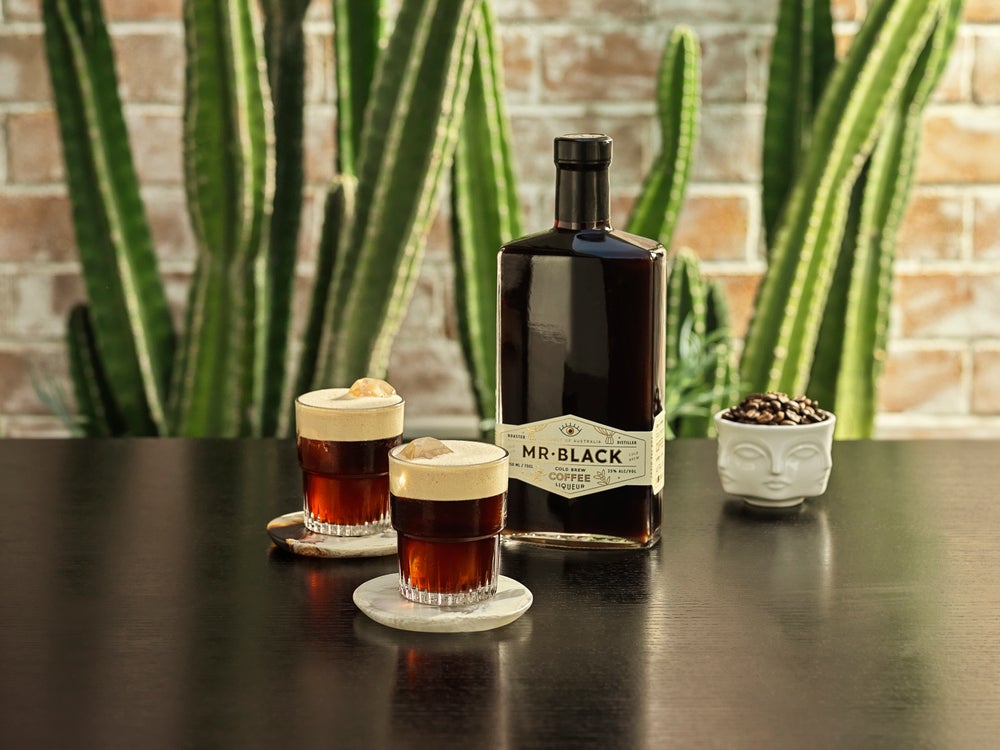 Image Credit: Courtesy of Mr Black Cold Brew Coffee Liqueur
Image Credit: Courtesy of Mr Black Cold Brew Coffee Liqueur
Related: All It Took Was One Taste, and Now This Former Designer Is Living a Booze Industry Dream
In 2015, Diageo Investment Corporation became a minority investor in Mr Black through its accelerator program, Distill Ventures. That and subsequent investments allowed Mr Black to build its roastery and brewery and enter the U.S. market.
Diageo acquired Mr Black for an undisclosed amount in September 2022. By then, the brand was the leading premium-priced coffee liqueur by volume in the U.S. and was available in 22 countries.
“Americans love cold brew. [So] it was a good signal to American drinkers.”
Naturally, Mr Black’s road to success wasn’t always smooth. The pandemic proved one of the most significant challenges, Baker says. The New York Times published an article about the brand on March 19, 2020, and “as you could probably imagine, that’s not what people were talking about on the 19th of March 2020.”
Mr Black had also spent considerable time and money establishing itself in the bar scene, where it saw most of its volume in 2019. So, the brand had to pivot; it used social media to connect with cocktail and coffee lovers and encourage them to enjoy the product in the comfort of their own homes.
The payoff was big — and continues. It’s been seven years since Mr Black’s U.S. launch, and over the past year, the multimillion-dollar brand, which is available in all 50 states, has doubled its business here — and just sold its 100,000th nine-liter case.
Related: The Great-Great-Granddaughter of the Long-Uncredited Man Who Taught Jack Daniel How to Make Whiskey Is Now the Award-Winning Master Blender at His Namesake Distillery
Baker attributes part of Mr Black’s popularity in the U.S. to its test-and-learn approach. According to the entrepreneur, Australians drink coffee hot no matter how warm the weather is, whereas people in the U.S. frequently take their caffeine cold.
“Americans love cold brew,” Baker explains. “It was a good signal to American drinkers like, ‘Oh, cool. You’re a new product. You’re not like my dad’s coffee liqueur.'”
“Everyone loves to get out and have a party and drink a few espresso martinis.”
Americans also love the espresso martini. The drink, which was developed in London by bartender Dick Bradsell in the 1980s, rose to fame in the 1990s, peaking in popularity at the end of the decade. After a decline, it made a comeback: Last year, the espresso martini rose five spots in the top ranking of U.S. cocktails, according to CGA by NielsenIQ’s cocktail sales tracker.
Baker says that Mr Black was “the driving force” in the espresso martini’s resurgence, noting that the brand has taught tens of thousands of bartenders how to make the drink and that he and his team “have personally probably drunk more espresso martinis in the U.S. than most other people.”
Mr Black has even brought its Espresso Martini Fest, which premiered in Australia in 2017, to the U.S. for the past three years. This year’s festival, which has enlisted 250 bars nationwide to showcase “their creativity through an array of espresso martini variations,” will run from September 19 to September 29. “It’s great,” Baker says. “Everyone loves to get out and have a party and drink a few espresso martinis.”
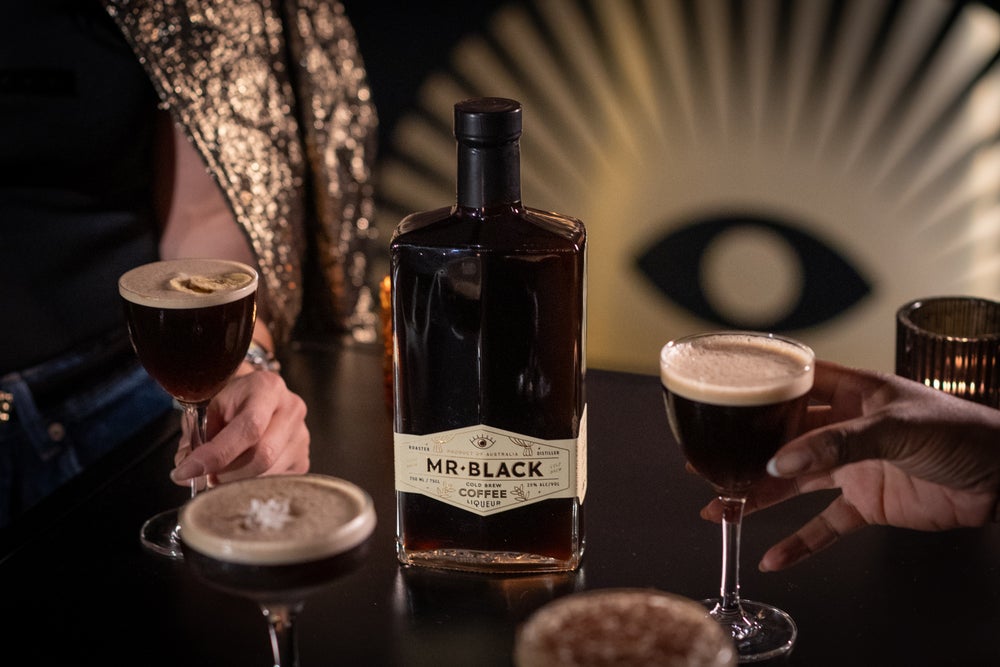 Image Credit: Courtesy of Mr Black Cold Brew Coffee Liqueur
Image Credit: Courtesy of Mr Black Cold Brew Coffee Liqueur
Related: Despite a 22-Year Age Gap, They Became Best Friends and Business Partners in Just One Year — Now Their Cocktail Company’s Going Against the Grain Too
However, as much as Baker appreciates the mutually beneficial relationship between Mr Black and the espresso martini, he takes issue with the assumption that his brand only has as many fans as it does because of the caffeinated cocktail. “It’s easy to attribute our success to this drink,” Baker says, “but it’s more interesting to ask, ‘Why are we winning?'”
The answer to that question, according to Baker, is simple and goes back to the very beginning of Mr Black’s story: Quality remains his coffee liqueur’s differentiating factor.
“We probably could have saved millions of dollars and a few years had I just spent another three months thinking about that.”
Additionally, as elated as Baker is by the brand’s success to date, he says Mr Black has only scratched the surface. “I’m not shy in terms of my ambition for the brand,” he says. “We want to be No. 1 [in the world].”
To other cocktail enthusiasts who aspire to start their own spirits brands, Baker has some advice that might save them a lot of time — and money.
First, realize that the playbook is different these days, so going through the motions and trying to replicate another brand’s success to a tee won’t get you the results you’re after, Baker says. He suggests drilling down on who your customers are — and how to keep them coming back.
“[I wish we’d] spent a little more time upfront thinking about how we were actually going to recruit drinkers into our brand,” Baker explains. “What will we be better at than every other liquor company? How am I going to get into [customers’] repertoire? I think we probably could have saved millions of dollars and a few years had I just spent another three months thinking about that before we started Mr Black.”
Read the full article here


